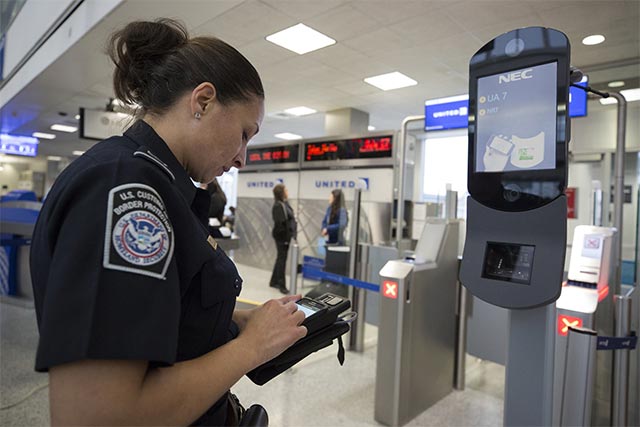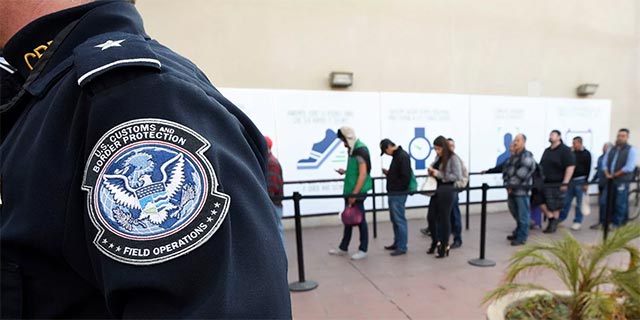Hacker successfully stole 100,000 photos from border control database
The Customs Department and US Customs and Border Protection (CBP) have officially released a statement on Monday that the database of one of their subcontractors has been "visited" by hackers. in a malicious cyberattack, which led to more than 100,000 photographs of travelers who have been and left the United States stolen.
According to an official who is responsible for investigating the incident, there will be nearly 100,000 people affected after the data leak is unfortunately, and of course most of them are foreigners to travel. calendar in the US.

- Hacker attacks a US city demanding $ 100,000 ransom with Bitcoin
In an interview with The Register, CBP spokesperson said the stolen database included photos of faces, portraits and license plates of people who had left or entered the country. into the US. This amount of data has been transferred by CBP to the subcontractor's storage network without permission or approval from the federal supervisory agency.
However, it can be said that CBP has been somewhat 'lucky' in this incident when the stolen data is mainly photos and does not include any really valuable identification information, nor does it Any information relating to the passport or visitor profile falls into the wrong hands.

- GoldBrute botnet campaign is trying to hack 1.5 million RDP servers worldwide
This violation was first brought to light on May 31 last.
CBP refused to disclose information about the subcontractor as the victim of the attack. However, according to The Register's report, on May 24, a hacker nicknamed 'Boris Bullet-Dodger' successfully infiltrated the database of Perceptics - a company that provides public solutions. technology for immigration data management in the US-Mexico border area. More seriously, the hacker has also publicly provided the data he stole as a free download on Dark Web.
Of course, it has not been confirmed whether Perceptics' case has anything to do with the exposition of 100,000 CBP images, but the question is inevitable, although the CBP side has repeatedly confirmed that there is no Any image data stolen appears on Dark Web or internet.

- Find out about Ghidra - NSA's powerful cybersecurity tool
The news of this serious data breach appears right in the face of facial recognition technology being the main topic of growing debates between civil liberties and lawmakers, those who have expressed concern regarding frauds as well as infringing upon privacy when this technology is widely used.
The fact that CBP or any other border security agency in the world uses cameras and videotapes of airport travelers as well as land border gates has long been known. The captured images are used as part of the face recognition program, which is designed to track the identity of people entering and leaving the United States.

- The cybersecurity tools that every business should know
With the database containing personally identifiable information becoming the target of hackers and cybercrime, this incident has contributed to emphasizing the urgent need for state management agencies in careful assessment of the risk level for data collection activities and especially the security of the personal data they collect.
You should read it
- ★ Nearly 1 billion user profiles fall into the hands of hackers
- ★ Blackmail Uber, LinkedIn, two hackers received a harsh sentence
- ★ Can your data be stolen when using public Wifi?
- ★ Hackers sell personal data of millions of people in Moscow for only $800
- ★ More than 1 million payment card information from Korea is sold on Dark Web